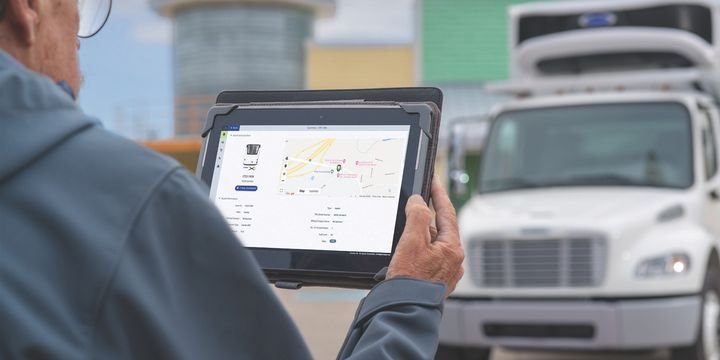
Telematics has revolutionized truck management, allowing for the tracking, electronic logging, and remote access to onboard diagnostics. While this technology is still rare in trailers, it’s poised to revolutionize the management of this equipment and the cargo it carries.
The adoption of trailer telematics is a chicken and egg problem: customers aren’t demanding equipment from their suppliers, so trailer manufacturers are slow to add sensors to their trailers. Right now, demand for trailers is outstripping supply, so companies don’t want to add equipment that may slow down production.
That may soon change, as the same freight capacity limitations driving trailer sales are also starting to drive demand for telematics. This makes it easy to find a trailer on the move, and it provides real-time data on the condition of equipment before breakdowns occur. It also provides information that helps fleet managers make better equipment decisions and manufacturers build better trailers. These benefits are already proven in truck telematics. However, what may push trailer telematics into the mainstream is asset management and long-term assessment.
These systems use cameras and sensors to relay information about the cargo, so issues can be addressed before they become problems. The fleet manager and driver can be alerted to door openings to prevent theft. If temperature sensors are out of range, maintenance can be scheduled for the reefer unit on the road or for cargo to be transferred to a working trailer before it’s damaged. Photos and video inside the trailer can identify loading problems and help the fleet manager identify underutilized trailers. In the future, we could see tracking systems that can identify every item inside the trailer so that each shipment can be pinpointed, no matter how small.
Using trailer telematics also gives the fleet manager an overall picture of their trailers’ lifespans. This can be used to predict failure points, like tire and wheel bearing wear, allowing replacement to be scheduled before parts break down. While there are fewer parts to worry about than a truck, this still cuts down on shipping delays and repair costs. Between fewer breakdowns, more efficient cargo usage, and lower operating costs, telematics offer excellent ROI.



